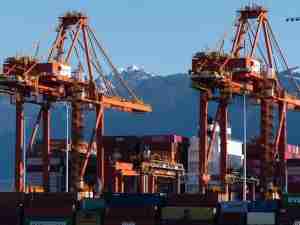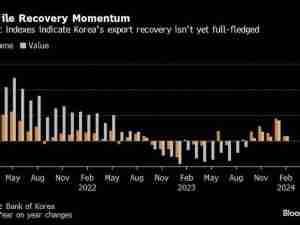More small companies are likely to go out of business as a consequence of Brexit, a former joint head of the U.K.’s Government Economic Service has warned a new commission on trade.
Vicky Pryce told the U.K. Trade and Business Commission that “small businesses are particularly affected” by red tape and logistical issues caused by Britain leaving the European Union, and they can’t afford the lawyers and advisers employed by big companies.
The cross-party group of lawmakers and experts launched on Monday to examine trading relations with the European Union and new deals with the rest of the world after the parliamentary committee on the future relationship with the EU was disbanded at the start of the year. It’s supported by anti-Brexit group Best for Britain.
While the U.K. government is emphasizing its ambitions for a “Global Britain” to expand trade links with the rest of the world, that effort probably won’t be enough to make up for what small companies have lost with Brexit, said Thomas Sampson, associate professor at the London School of Economics.
“Trying to find a route for small firms to replace lost business with the EU with the rest of the world is going to be very difficult,” he said.
Even if London were able to agree a trade accord with Washington, which insiders believe unlikely until at least 2023, Pryce cautioned that Britain already sells a lot to the U.S., minimizing the potential economic benefits.
And any deal would involve painful political compromises in the U.K. International Trade Secretary Liz Truss has pledged not to compromise food standards in a deal with Washington, for example by giving the the U.S. access to the British market for products like chlorinated chicken, which consumer groups find objectionable.
“We would have to do something quite major in relation to our standards, environmental and others” to reach a deal with the U.S., Pryce said.
In addition, she said the U.K. may be missing out on deals Brussels strikes with the rest of the world, such as the EU-China investment agreement.
The commission also heard that:
- It’s still too early to predict how Brexit will change the structure of the U.K. economy
- A big issue for the car industry will be how to boost the market in electric vehicle production, especially battery production facilities
- “There’s no silver bullet” that’s can solve issues surrounding the implementation of the Northern Ireland Protocol overnight, Sampson said
- A more comprehensive deal on sanitary and phytosanitary checks involving live plants along with trade in services with the EU “is not Brexit,” according to economist Julian Jessop, economics fellow at the Institute for Economic Affairs







